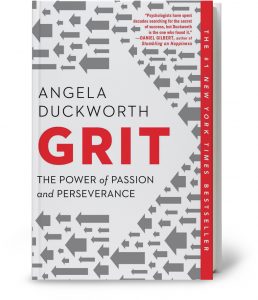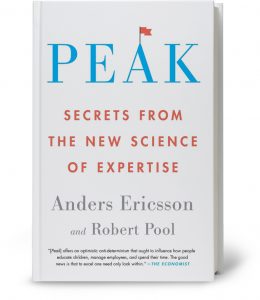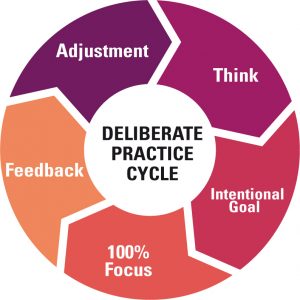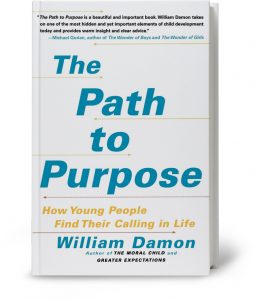Grit: The Formula For Success That Can Be Learned
What experts say about cultivating excellence.
What experts say about cultivating excellence.

By Derek Ariss
While writing this article, most of the countries I deal with are in some form of lockdown. People who worked in offices are now working at home. Classes, meetings, strategy sessions that were face-to-face are now Zoom meetings. This impact has been massive – commercially, socially, and mentally. In these adverse times, some people are thriving and others are faltering. Some businesses are pivoting, adapting, and others are frozen, waiting for a green light to move forward.
What makes the difference? I believe it is grit. This combination of passion and perseverance is the distinguishing feature and interestingly, it can be developed within all of us and our organisations. Grit allows us to deal with setbacks and keep moving forward. Developing grit allows all of us to achieve excellence regardless of time.
One of the leading experts in grit and this line of thought is Angela Duckworth. She is a professor of educational psychology at the University of Pennsylvania and a 2013 MacArthur Fellow (also known as the ‘Genius Award’). She has done fantastic research in the area of grit. Her passion is to study grit and the attributes that contribute to success in life. Her research into grit is both thought- and action-provoking. Her research marks a pathway for individuals and organisations to be able to build excellence and achievements.
In this article, we will discuss:

Grit, by definition, is courage, resolve, and strength of character to complete a task.
According to Prof Duckworth, grit is the combination of passion and perseverance to get long-term tasks done. This connection came through several years of research and discovery.
Prof Duckworth was trying to identify answers to some tough questions, such as:
The answer came slowly and through many years of study. An important discovery came out of one of her research projects. Prof Duckworth was working on a challenge faced at the US Military Academy, also known as West Point. West Point has the reputation of accepting only top-tier candidates. To be considered for admission to West Point is a rigorous process where the school looks at only the best-of-the-best candidates.
Getting into the West Point programme is exceptionally difficult:
Yet, even after detailed reviews, 20% of students drop out before graduation, most of whom leave in the first seven weeks of a rigorous initiation training programme.
Try as they might, the critical factor to discern which students will see the initiation programme through and which will drop out could not be identified.
When working on the West Point project, Prof Duckworth found that measuring a cadet’s level of grit could be an accurate predictor of whether the student would have the mental toughness to see the programme through. High levels of grit meant high levels of success.
This discovery was both impactful and significant. The stronger one’s level of sustained passion, combined with long-term perseverance, the higher one’s level of mental toughness and, in turn, success in completing the programme.
As individuals, we all vary in our grittiness. The higher your grit, the stronger the levels of passion, persistence, and performance.
Yes, there is a way of measuring your grittiness. There is a grittiness scale readily available which you can use to measure your level of passion and perseverance. This scale is available online and similar to the one used in the West Point study.
To learn about your grittiness, here are two versions of the test which you can take.
A super-quick 60-second quiz which was created by Prof Duckworth for the New York Times: https://www.nytimes.com/interactive/2016/03/01/us/01grit-quiz.html or a slightly longer version accessible here: http://angeladuckworth.com/grit-scale/
Both these tests measure the perceived degree of passion and perseverance in a person. Irrespective of your grit score, you should know that grit can be developed further.
Effort is defined as a vigorous, determined attempt, physically or mentally, to accomplish something.
According to Prof Duckworth, effort counts almost twice as much as other factors of achievement. Even though a person may not have an extremely high level of talent, if they put continuous effort into what they are doing, they will achieve success.

Conversely, it means that if someone has very high levels of talent but don’t apply effort into developing the talent, they are likely not to succeed. Many of us have seen individuals or teams who worked hard, came out of nowhere and accomplished incredible feats.
The idea is to make it through difficulties and become successful. We need to need to put in the effort. Yes, hard work pays off more than we thought!
+ The theory and formula used by Prof Duckworth works like this:
It seems as though hard work and effort will propel people forward.
Gritty people seem to share the following core characteristics:
Gritty individuals pursue activities in which they have a genuine interest.
Benjamin Bloom was an American educational psychologist. He contributed significantly to the theory of Mastery Learning. One of his well-known research projects was conducted over five years, interviewing 120 of America’s top artists, athletes, and scholars.
In this study, he concluded that drive, determination, and interest led to extraordinary success. Bloom stated that the research “points to the enormous potential available in each society and the likelihood that only a small amount of this human potential is ever fully developed”. He also concluded, “We believe that each society could vastly increase the amount and kinds of talent it develops.”
It appears that these 120 top performers developed an interest in their area of expertise and this interest grew.
For us, the takeaway should be that the starting point to grit is finding and developing an interest in what we do, then build that into our work.
What if you don’t know what your interest is? Well, as a starter, create an Interest Inventory, a simple list of topics and areas that you are genuinely interested in. Here is a sample of questions for you to consider:
Of course, interest is not the only component in developing grit. It is the starting point. Once you have your interest established, you need to practice.

Prof Anders Ericsson is a specialist in studying experts. His research deals with studying the behaviour of award-winning scientists, high-performing athletes, and world-class artists.
In his book Peak: Secrets from the New Science of Expertise, he identifies the standard behaviour of these high performers. They practice often and regularly. To be a great performer and to develop grit, people need to do what he calls ‘deliberate practice’.
Deliberate practice is not the type of practice that you see distracted 7-year-olds do when they have to play the piano for an hour because Mom said so. Deliberate practice is the type of practice that is laser-like in its focus.
According to Prof Ericsson, deliberate practice has four components:
Think and then start again.
It forms a continuous cycle that looks a little like this.

Experts do this and gritty people do this too. This deliberate practice model works across functions. You can use it for running a marathon or improving business practices.
For us, the takeaway should be to identify a goal to which deliberate practice can be applied. Make sure it is something that stretches you. Examples of goals could be:
The third characteristic of gritty people is that they have a bigger purpose behind what they do. They are developing and growing to accomplish a purpose bigger than themselves.
Whether a hedge fund manager, a teacher, a performer, or an investment banker, according to Prof Duckworth the gritty individual wants to accomplish something beyond what they do for themselves.

Often, the purpose is around benefitting others. For example, for the teacher, it may be to create accessible education for everyone. For the hedge fund manager, it may be to share the principles of investing with the public. It doesn’t matter what the bigger purpose is, as long as it is personal and important. This seems to be the energy source that people tap into when things get tough and it gets them to perform.
This is in line with the findings of Prof William Damon at Stanford University. Prof Damon is a leading researcher in the development of purpose. In his book The Path to Purpose, He identifies that the highest sense of fulfilment comes from combining your purpose with something that benefits you and assists other people.
So, the question to us may be, “What is our bigger purpose?”
The fourth characteristic of gritty individuals seems to be that despite setbacks, they keep picking themselves up and moving forward.
There is a Japanese proverb, “fall seven times, get up eight”. This is what gritty people do. What gives people the ability to do this?
The idea behind this is if someone has hope, they will learn and grow from any setback. Hope is all about the person’s mindset. Gritty people don’t see setbacks as a stopping point. Instead, they see setbacks as a learning experience. They take their learnings as part of the journey to becoming better.
These people will look for opportunities to keep learning and growing. They will put more effort into it, and in turn, their successes will improve. The ability to be able to keep learning and growing is all about having the right mindset.
We’ve seen by looking at the qualities of extremely gritty and successful people that by developing personal grit, excellence and achievement is possible for all of us. Sure, developing grit, takes work, but the benefits are worth it.
Derek Ariss is Head of Innovation Education at Lightbulb Capital and is responsible for building the education practice, focusing on creativity, design thinking, technology, culture, and mindset conducive to innovation in finance. He previously guided the company as an Advisory Board Member to Lightbulb Capital Pte Ltd. Before his current role, Derek was the Head of Innovation at LendLease. He was responsible for designing processes to deliver improved products and systems, nurturing a culture of innovation in Asia, and developing productive relationships with organisations that focus on innovation and growth. Before his position as Head of Innovation, he was Head of Retail Operations overseeing the retail assets managed by the company across Asia. Derek also teaches part of the Singapore Management University (SMU) Certificate in FinTech and Innovation course and an Innovation Culture Catalyst course at SMU. He holds an MBA in International Marketing and Strategy and Bachelor of Commerce (Honours) from the University of Windsor, Canada, and a Bachelor of Science in Psychology and Biology.